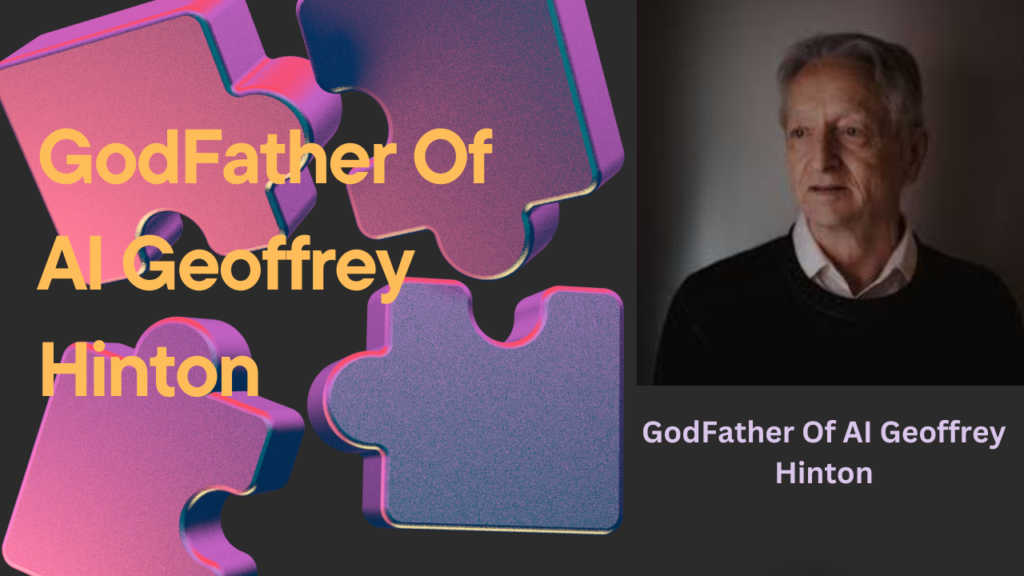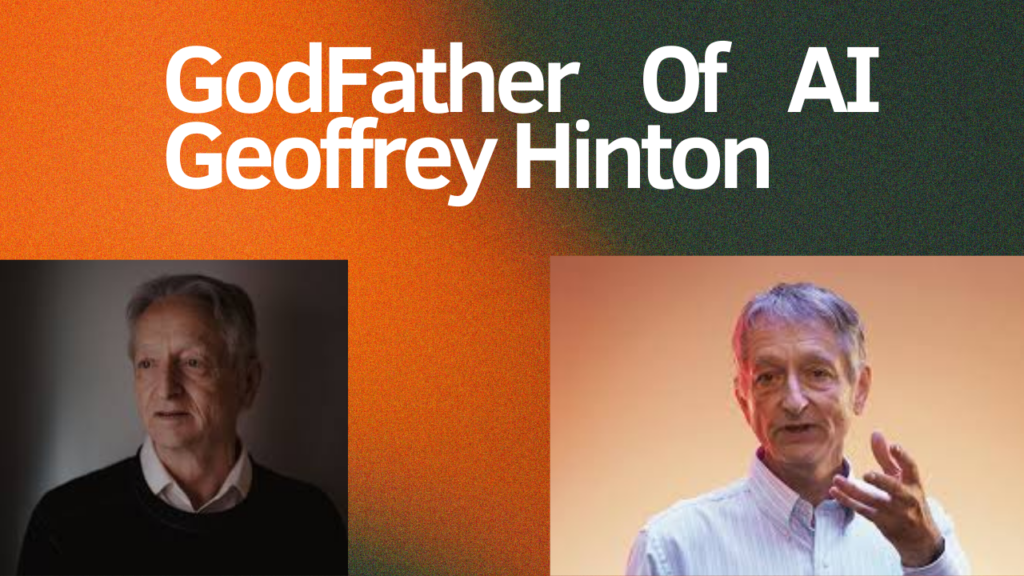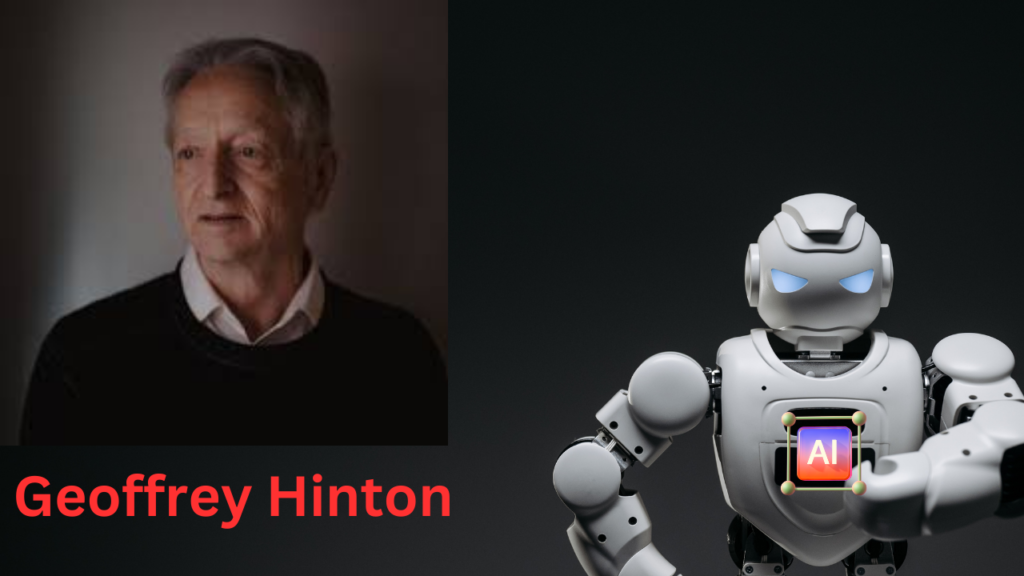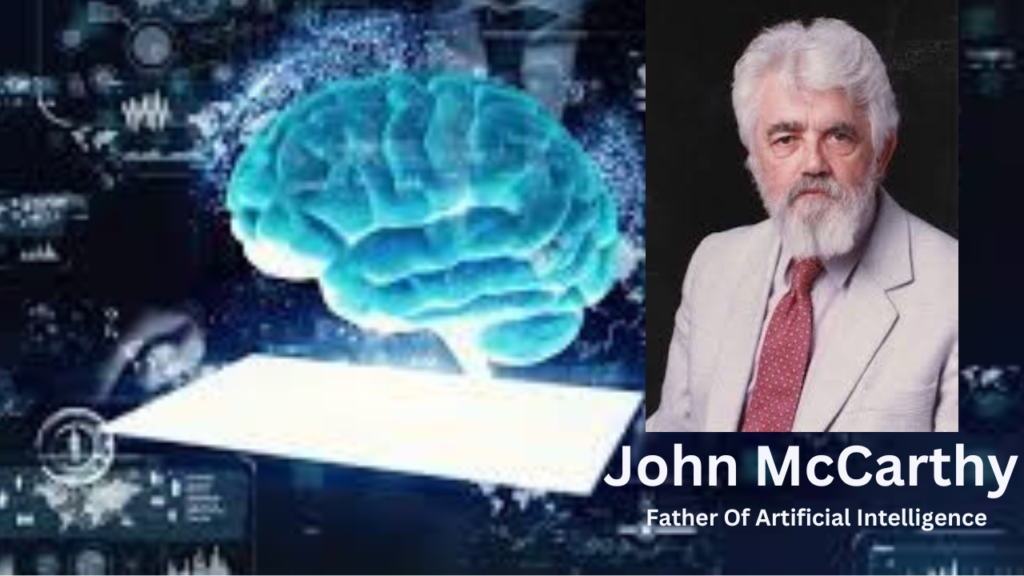GodFather Of AI Geoffrey Hinton
Geoffrey Everest Hinton, born 6 December 1947, is a British-Canadian computer scientist and cognitive psychologist, best known for his work on artificial neural networks. Geoffrey Hinton is a pioneer in the development of artificial intelligence (AI) and neural networks. Has been a central figure. His pioneering work has laid the foundation for the current AI revolution, Geoffrey Hinton has influenced everything from speech recognition to self-driving cars. This article highlights Hinton’s contributions, his impact on the field, and his vision for the future of AI. Geoffrey Hinton’s academic journey began at the University of Cambridge, where he earned a Bachelor of Arts degree in Experimental Psychology in 1970. Later he completed his Ph.D. Studied. in Artificial Intelligence at the University of Edinburgh, which he completed in 1978. His thesis, “Relaxation and its Role in Vision”, laid the groundwork for his future research in neural networks.

In the early 1980s, Hinton’s work began to attract critical attention. David Rumelhart and Ronald J. With Williams, Hinton was co-author of a highly cited paper published in 1986 that popularized backpropagation algorithms for training multi-layer neural networks. This algorithm allowed the neural network to learn from its mistakes by adjusting the weights of connections between neurons based on the error of the output. Backpropagation became a significant breakthrough, enabling the training of deep neural networks and igniting a wave of research in the field.
Hinton’s research focuses on understanding how the human brain works and mimicking its processes through artificial neural networks. His work in the 1980s and 1990s included the development of Boltzmann machines and restricted Boltzmann machines, which are stochastic neural networks capable of learning complex distributions. These models were instrumental in advancing unsupervised learning and feature extraction.
An accessible introduction to Geoffrey Hinton’s research can be found in his articles in Scientific American in September 1992 and October 1993
Geoffrey Hinton is known internationally for his work on artificial neural nets, particularly on how they can be designed to learn without the aid of a human teacher. They have compared the effects of brain damage to the effects of damage in such nets, and found surprising parallels with human impairments, such as losses in recognition and categorization of names. His work includes studying mental imagination and creating puzzles to test originality and creative intelligence. It is conceptual, mathematically sophisticated and experimental. He brings these skills together to create a significant work of great interest

In 2001, Geoffrey Hinton was awarded an honorary doctorate from the University of Edinburgh. He received the Canada Council Killam Prize in Engineering. In 2016, he received the Canada Council Killam Prize in Engineering for “contributions to the theory and practice of artificial neural networks and their application to speech recognition and computer vision.” For” was elected a foreign member of the National Academy of Engineering, In 2018, he became a Companion of the Order of Canada
Geoffrey Hinton’s most notable achievements came in 2012 when his research team, including Alex Krizhevsky and Ilya Sutskever, won the ImageNet competition. They developed a deep convolutional neural network called AlexNet, which outperformed all other competitors in object recognition tasks. This victory marked the beginning of the deep learning era and established Convolutional Neural Networks (CNN) as a powerful tool for image processing.
Hinton’s influence extended beyond academia. In 2013, he joined Google as a distinguished researcher, where he continued to advance the field of AI. At Google, Hinton worked on a variety of projects, including improving speech recognition systems and developing Google Brain, the company’s deep learning research unit. His work has had a profound impact on the tech industry, leading to innovations in natural language processing, computer vision, and robotics.
In an interview with The New York Times published on May 1, 2023, Hinton announced his resignation from Google so he could “talk about the dangers of AI without considering how it affects Google He said that because of his concerns “part of him now regrets his life’s work” and expressed apprehension about the race between Google and Microsoft.
In early May 2023, Geoffrey Hinton claimed in an interview with the BBC that AI could soon surpass the information capacity of the human brain. He described some of the risks posed by these chatbots as “pretty scary.” Hinton explained that chatbots have the ability to learn and share knowledge independently. This means that whenever a copy receives new information, it is automatically broadcast to the entire group.

Geoffrey Hinton has expressed concerns about the possibility of AI takeover, stating that “it is not inconceivable” that AI could “wipe out humanity”.
He says that AI systems can become power-seeking or turn themselves off, not because programmers intend them to do so, but because they find sub-goals useful for achieving subsequent goals.
Geoffrey Hinton expressed concern about the deliberate misuse of AI by malicious actors, saying that “it’s hard to see how you can stop bad actors from using [AI] for bad things.” In 2017, Hinton called for an international ban on lethal autonomous weapons.
Hinton has previously been optimistic about the economic impacts of AI, saying in 2018 that: “The phrase ‘artificial general intelligence’ implies that this kind of single robot is suddenly going to be smarter than you. I don’t think that’s going to happen. I think most of the routine work we do will be replaced by AI systems.
However, in 2023, Hinton is “worried that AI technologies will change the job market over time” and take away more of the “hard work”. He said again in 2024 that the British government would have to establish a universal basic income to deal with the impact of AI on inequality. In Hinton’s view, AI will boost productivity and generate more wealth. But unless the government intervenes, this will only make the rich richer and hurt those who may lose their jobs. “This is going to be very bad for society.

What is tha father or AI
One of the greatest innovators in the field of AI goes to John McCarthy. McCarthy (1927–2011), was an American computer scientist and cognitive scientist who coined the term “artificial intelligence” (AI) in 1956. McCarthy presented his definition of artificial intelligence at a conference on the campus of Dartmouth College in the summer of 1956. Which is considered to be the birth of AI as a field of study.
John McCarthy is also known as the father of LISP.
John McCarthy is considered the father of AI as well as Lisp. The Lisp programming language is a high-level programming language for artificial intelligence (AI) and symbolic computation. It was developed by John McCarthy in 1958. The full name of Lisp is “LIST Processing”, as it primarily uses lists as data structures. McCarthy developed the LISP.programming language, which proved important in AI research and development. Lisp is still used in AI today.In Lisp both data structures and programs are represented as lists. Lists can be used for both simple and complex data structures.In Lisp you can define the data number that POST itself. This makes it easy to create and manage related data labels.The major use of Lisp is in AI research and development. It is used in mathematical calculations, automation theory, natural laboratory language, expert systems. The power of Lisp and it has been developed as an ideal language for AI research.Originally specified in 1958, Lisp is the second oldest high-level programming language still in common use.